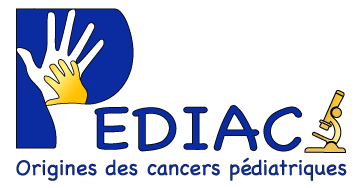TEAM VERONIQUE MAGUER-SATTA and Jean-Yves blay
Modeling the ontogenic and environmental impact of pediatric cancers
Under the leadership of
Pr. Jean-Yves Blay and Dr V. Maguer-Satta, the objective of the “Oncopediatric Research” team of the
Centre Léon Bérard is to promote an integrative approach to the question of childhood cancers, by bringing together the expertise of basic researchers (Dr V. Maguer-Satta, Dr M Castets, Dr L Broutier, Dr A Dutour,
Dr S Lefort), with that of clinicians, epidemiologists and specialists in exposology (Pr B Fervers, Dr N Corradini).
Pr Blay significantly contributed to the field of rare cancers, through studies conducted at clinical, epidemiological, translational and fundamental levels, notably focused on children, adolescents and young adults, making him a
world expert (Member of the European Union Committee of Experts of Rare Disease, and Director of the H2020 ERN on Rare Solid Tumors EURACAN), particularly on sarcoma. Pr Blay then brings its expertise in the different research fields,
to coordinate the implementation of transversal and interdisciplinary projects on childhood cancers, based on the use of knowledge and tools resulting from basic research for clinical or epidemiological applications. Dr V. Maguer-Satta
brings her long lasting expertise in the field of human stem cells normal and transformed in adult breast cancer and leukemia (CML, AML) as well as in pediatric Acute Myeloid Leukemia (AML). She is also an expert in the BMP developmental
signaling that control stem cells and their microenvironment and recurrently deregulated in cancer, and she develops 3D-microphysiological systems to reproduce easy to access 3D human bone marrow mimicking models for experimental
explorations. To define how the hijacking of developmental programs –resulting from intrinsic or extrinsic factors- can drive malignant transformation of the cell-of-origin and finally lead to the occurrence of cancers during childhood
or adolescence in the framework of this proposal, the team have set up a pipeline based on different innovative models and tools, which are crucial in answering questions about the origins of childhood cancers:
o The development of innovative models that can recapitulate both the tumor and its microenvironment in its complexity, with:
● Murine syngenic orthotopic models of osteosarcoma and rhabdomyosarcoma (M.Castets/A.Dutour);
● Organoid models from patients’ samples (L. Broutier);
● Mesenchymal stem cells isolation and 3D bone marrow reproduction (V. Maguer-Satta).
o The identification of key intrinsic alterations as well as environmental exposures that could favor malignant transformation of the cell-of-origin, based on:
● The
Share-4Kids multi-omic database, which will notably allow access to multi-omic data on sarcoma (M.Castets);
● A pre-neoplasic score (V.Maguer-Satta);
● The transposition of high-potential statistical models and tools to estimate joints and combined exposures impact on childhood cancers risk (B.Fervers).
o The modelisation of the role exerted by these intrinsic and extrinsic factors on alterations of developmental paths such as BMP ones, and their impact on tumorigenesis, with a focus on AML and sarcoma, thanks to models defined above and complementary expertises of the team.
The team will then take part to the three WP, and notably to the two last ones, by providing and setting up new models, whose analysis will hopefully improve the understanding of how the crosstalk between intrinsic and extrinsic factors lead to cancer initiation during childhood. This will notably be done in tight link with Teams 1 & 9 for leukemia, with Teams 7 & 10 for organoids design, with Team 10 for immune microenvironment characterization, and with Teams 2 and 6 for bioinformatic analyses.
